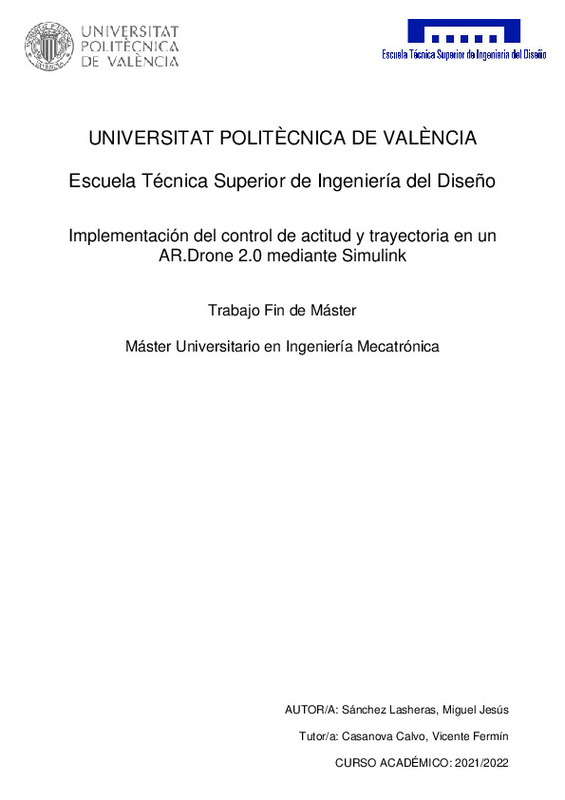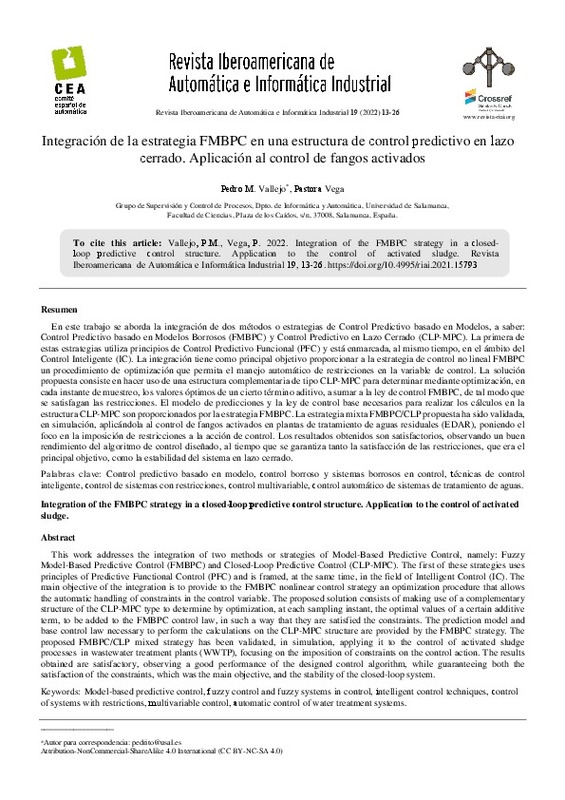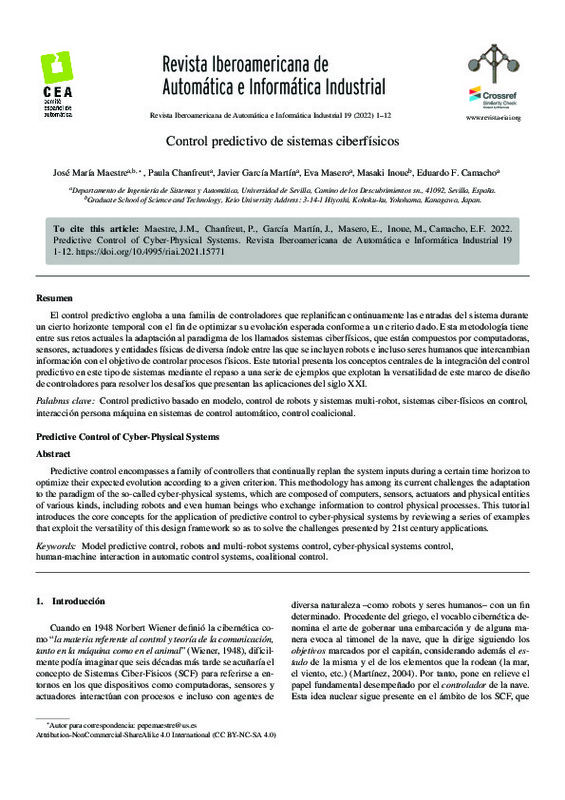|
Resumen:
|
[ES] El presente trabajo tiene como objetivo implementar un control de actitud y de trayectoria para un cuadricóptero, para ello se ha diseñado una plataforma hibrida donde se trabaja con el dron y en simulación simultáneamente. ...[+]
[ES] El presente trabajo tiene como objetivo implementar un control de actitud y de trayectoria para un cuadricóptero, para ello se ha diseñado una plataforma hibrida donde se trabaja con el dron y en simulación simultáneamente. El control ha sido realizado en Simulink, donde el programa se divide en dos: por un lado, uno que funciona en modo externo se utiliza para controlar y obtener lecturas de los estados del dron, este realiza el control de actitud y se encarga de enviar información al PC; por otro lado, se realiza una simulación en vuelo libre del dron con los datos recibidos en tiempo real, estos se emplean para el control de trayectoria el cual envía las referencias de orientación al dron. Se necesita de una comunicación bidireccional eficaz entre los dos programas, lo cual se ha realizado vía protocolo UDP debido a la disposición del dron. La estructura de ambos controladores se basa en reguladores PID, donde se pueden utilizar tanto trayectorias preprogramadas como referencias de orientación con un joystick. La herramienta desarrollada muestra mayor potencial en aplicaciones docentes, donde en ocasiones no es posible realizar el control de trayectoria debido al espacio disponible o por razones de seguridad. El modelo que se ha utilizado para la implementación es el AR.Drone 2.0, siendo un vehículo aéreo no tripulado (UAV) con una configuración de cuatro rotores en X.
[-]
[EN] The objective of this work is to implement an attitude and trajectory control for a quadcopter, for which a hybrid platform has been designed where the drone and simulation are worked on simultaneously. The control ...[+]
[EN] The objective of this work is to implement an attitude and trajectory control for a quadcopter, for which a hybrid platform has been designed where the drone and simulation are worked on simultaneously. The control has been carried out in Simulink, where the program is divided into two: on one hand, one that works in external mode is used to control and obtain readings of the states of the drone, it performs the attitude control and is responsible for sending information to PC; on the other hand, a free flight simulation of the drone is performed with the data received in real time, these are used for trajectory control which sends the orientation references to the drone. An efficient two-way communication is needed between the two programs, which has been done via UDP protocol due to the layout of the drone. The structure of both controllers is based on PID regulators, where both pre-programmed trajectories and orientation references with a joystick can be used. The developed tool shows greater potential in educational applications, where the available space may prevent trajectory control or due to security reasons. The model that has been used for the implementation is the AR.Drone 2.0, being an unmanned vehicle (UAV) with a configuration of four rotors in X
[-]
|










